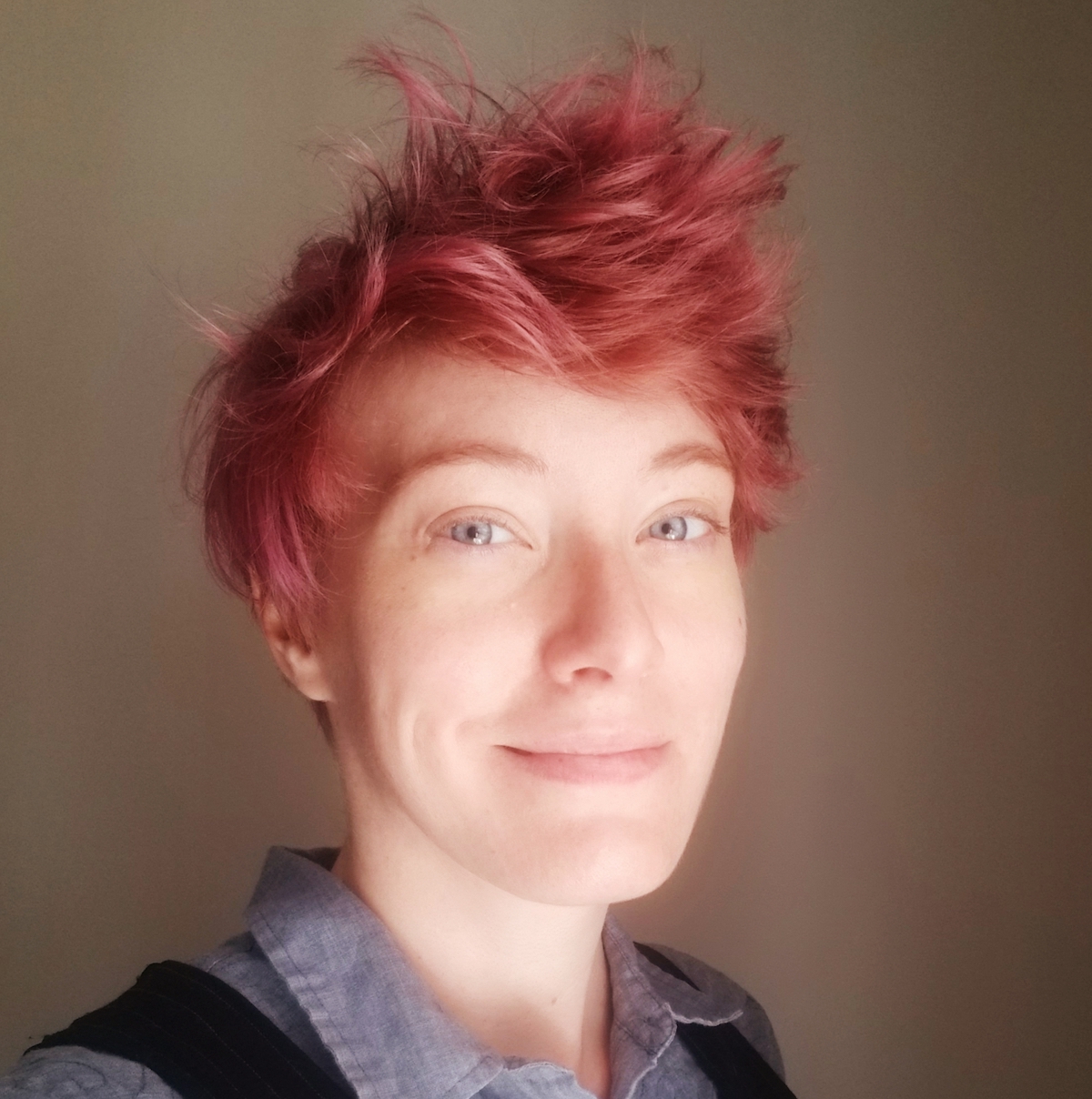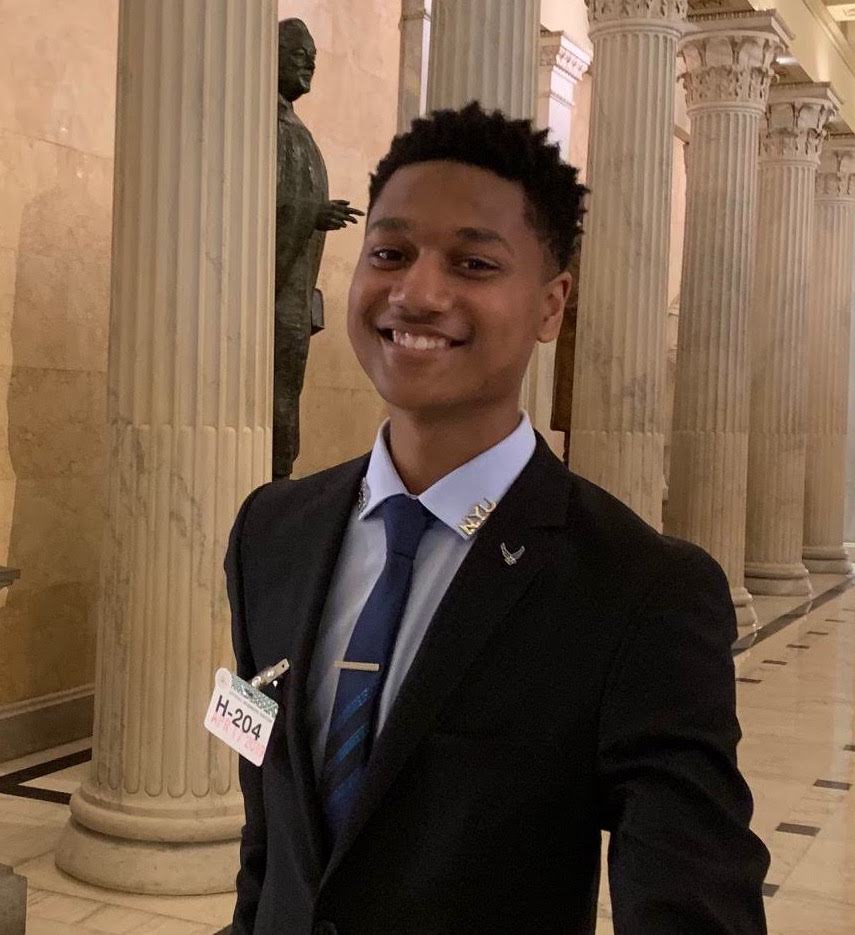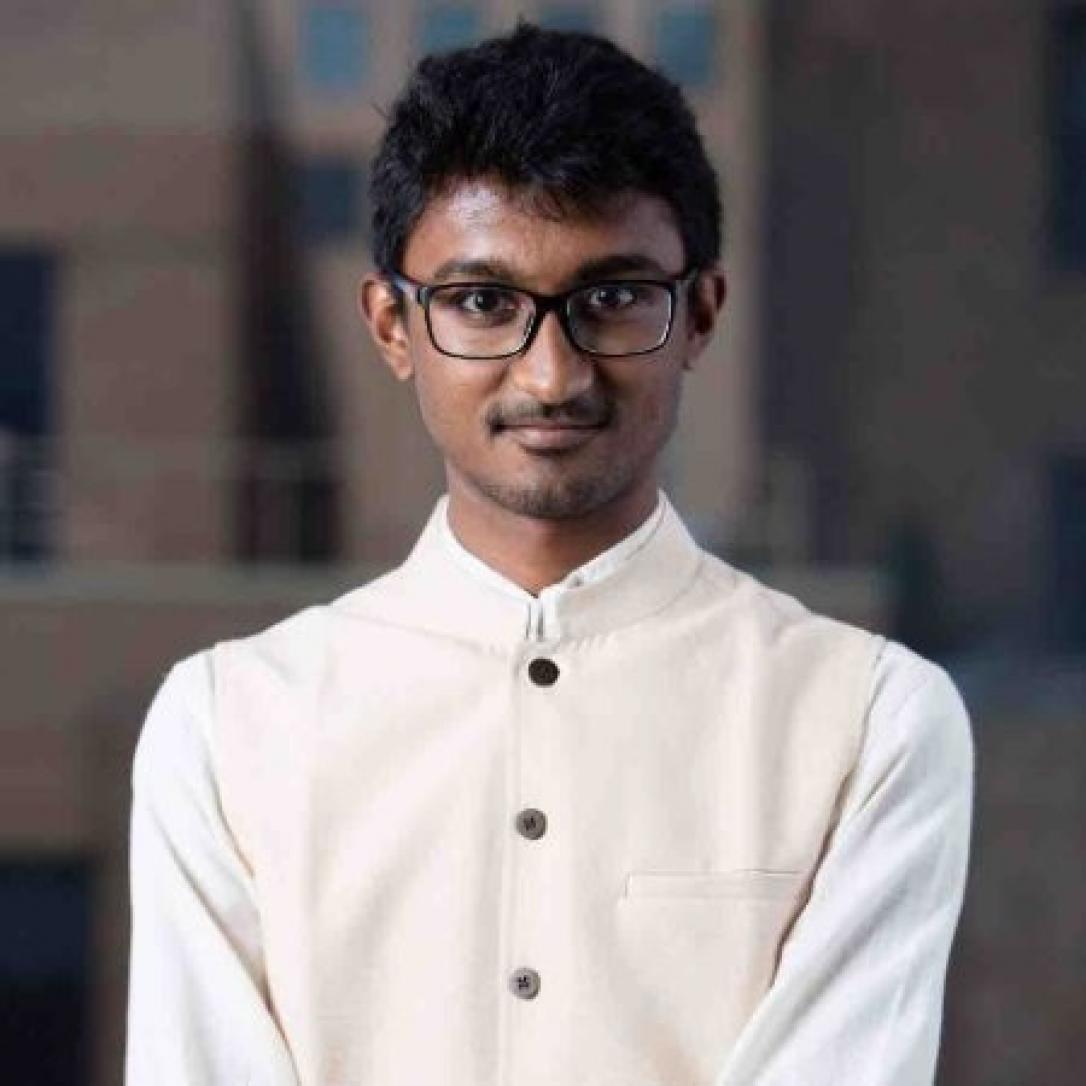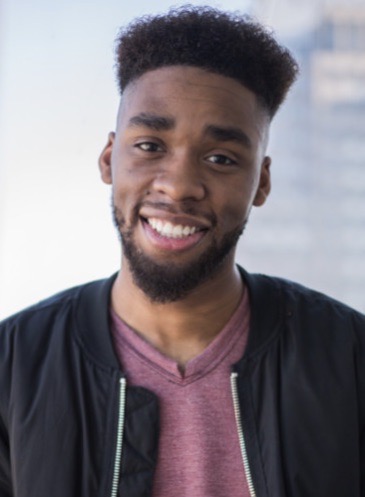NYU students and professor develop a free, online course to train problem-solvers and changemakers
This February, the Governance Lab (The GovLab) at NYU Tandon launched Solving Public Problems, a free, online program to help ordinary people develop the skills they need to make a difference in their own communities. Beth Simone Noveck, a professor and the program’s creator, felt strongly that it’s often hard for even the most committed and determined person who wants to change the world for the better to know where to start.
So who better to enlist to help get this learning into people’s hands than students with expertise in technology, video production, and web-design, who had also taken this course with her before. Thus, she asked Anirudh Dinesh, Caitlin Gebhard, Nelson James, and Jason Williams-Bellamy to help her produce this first-of-its-kind, 12-part online program. They designed and edited the course trailer and all the course lecture videos, and they set up and designed the course’s free, innovative, open-source learning management system. They worked with Professor Noveck to write quizzes and self-assessments so that learners could monitor their progress and much more and integrated additional features to ensure that participants could talk to one another.
Read more about them, the challenges of the project, and the rewards of being an agent of change.
Name: Caitlin Gebhard
Major: Integrated Digital Media (MS ‘21, Tandon)
Explain your specific part in the project.
 I helped to create the technical and visual design for the online course: choosing and configuring the online platform, designing the course website, choosing and creating the visual elements for the course. Because I have a background in technical writing and work in educational publishing, I also helped to ensure that the concepts outlined in the course, as well as the instructions participants must follow, are in easy-to-understand, accessible language.
I helped to create the technical and visual design for the online course: choosing and configuring the online platform, designing the course website, choosing and creating the visual elements for the course. Because I have a background in technical writing and work in educational publishing, I also helped to ensure that the concepts outlined in the course, as well as the instructions participants must follow, are in easy-to-understand, accessible language.
At a time when so much learning is taking place remotely, clarity and accessibility of online content are more important than ever.
How do you define a “changemaker?”
Since I arrived at Tandon, my thoughts on this have evolved. I used to think of changemakers as those making enormous, historic strides, but I now realize that each of us can be a changemaker in our own, individual way. If enough people make small, incremental changes, those changes are going to snowball, and that’s how we’ll eventually make enormous strides.
Can you point to a pivotal moment in your own life when you became interested in using tech for social good?
This isn’t a single moment, but I had a series of moments while working on academic content at my publishing job. I knew that learners with disabilities were frustrated because some of the material wasn’t accessible to them. That became frustrating for me, because I realized that the way things were built needed to change and that required certain skills. I saw that having those skills meant having the power to make needed change.
Is there one public problem you see as most intriguing/important/intractable?
Another way to think about this question might be in terms of “isms.” There are so many that require action . . . racism, sexism, ageism. The one I’m targeting professionally is ableism, which is discrimination against people with physical, intellectual, or psychiatric disabilities.
It’s important to increase access to information, services, and changemaking for all, so I hope at least some of the people taking the course will be tackling those issues along with me.
Assume a perfect world in which everyone is equipped with the knowledge gained from this course — what is the end result? What does that look like?
That is a huge, and frankly unrealistic, assumption. There is no such thing as a perfect world if only because everyone has a different idea of what constitutes perfect. Even if everyone in the world had access to the information in the course, there would still be societal problems to deal with. The difference is that everyone would be working to solve them, and all that collective effort would make major impacts. (It’s the snowball effect!)
One important factor in taking the course is that it allows participants to engage with one another, brainstorm, and lend support. Making change can seem slow or frustrating sometimes, so we all need that connection and support.
Name: Jason Williams-Bellamy
Major: Public Policy (BA ‘21, CAS)
Explain your specific part in the project.

As a research and communications intern at the GovLab, I addressed many of the basic, nuts-and-bolts issues that needed to be in place. For example, there are New York State requirements that must be met if an online course is going to be offered for credit. Because the course was originally conducted as part of NYU’s “Big Ideas” series, I researched those and ensured our compliance. I also researched interview subjects and helped reach out to get them to participate, and I created the self-assessments that allow students to monitor how well they are absorbing the material as they move through the modules.
How do you define a “changemaker?”
A changemaker is someone who addresses public problems head-on and is so passionate about it that they’ve centered their careers around their missions. I’m thinking about some of the people who are interviewed as part of the course, like Achim Steiner of the United Nations Development Programme; Chris Sarra of the Stronger Smarter Institute, which is redefining what it means to be Aboriginal in contemporary Australian society; or Maurice “Moe” Mitchell, the National Director of the grassroots Working Families Party. I hope that one day I can take everything I’m learning at the GovLab and NYU and become a changemaker too.
Can you point to a pivotal moment in your own life when you became interested in using tech for social good?
I have always been interested in public policy, but it was taking a course with Beth Noveck, the founder of the GovLab, my sophomore year that really opened my eyes to the ways in which things like open data and crowdsourcing can help make systems of governing more efficient, transparent, and legitimate.
Is there one public problem you see as most intriguing/important/intractable?
Speaking personally, I’m very concerned about urbanization in the developing world. As more and more people move into cities, congestion and pollution become bigger problems, and issues of public health and economic inequality need to be addressed. Last year the GovLab launched a Multi-City Challenge that pools expertise from city residents and participants around the world in order to find innovative solutions to some of those problems. Recently, cities in Ethiopia, Ghana, Nigeria, Uganda, and Zimbabwe participated, successfully gathering ideas to make waste management more efficient, increase economic resilience in poor areas, and provide assistance to informal businesses.
That’s the kind of problem-solving I want to be involved in after I graduate.
Assume a perfect world in which everyone is equipped with the knowledge gained from this course — what is the end result? What does that look like?
I can’t really speak to what a perfect world would look like, but I do know that everyone who takes this course will have the skills to make it at least a little more perfect, from basic things like writing a request letter to harnessing the power of human centered design.
Name: Anirudh Dinesh
Major: Computer Engineering (MS ‘17, Tandon)
Explain your specific part in the project.

I’ve worked with Professor Noveck on a whole range of projects at GovLab, primarily focused on citizen engagement and crowdsourcing, and understanding how we can get our communities involved in solving complex public problems. That involves both citizens within communities and experts in our communities who are not the usual suspects in problem-solving or decision making. So we’ve been trying to figure out the best way to kind of include them in the decision-making process at the government level, to make it more reflective of an evidence-based, community-based approach to governing.
For this project, I was involved with setting up the learning management system and the website, along with the technical aspects of the whole course. But also, having worked with Beth Noveck for many years, I’ve helped put together the content vision for the program and had my hand in the development of course materials and the outlook of the program generally.
How do you define a “changemaker?”
I think a changemaker is anyone who has a fire in their belly to really help people around them. Now, you might not be able to solve all their problems, but if you have a goal in mind, you know you have to help improve lives using whatever skills you have. I think that person is a changemaker. I don’t think you need a particular background; you could be involved in politics, or community organizing. You could be a teacher or you could be a student. There's no age or profile for a changemaker — it's anyone who's just willing to roll up their sleeves and go out and do something about a problem they care about.
Can you point to a pivotal moment in your own life when you became interested in using tech for social good?
I came to NYU for my Master's in computer engineering. My original focus was on consumer product design — not necessarily work that deals in the public interest. It was only after I met Professor Noveck and started working in her lab that I discovered that people do this kind of socially-conscious work for a living. This was over five years ago, and I’ve been working on projects like this since.
Is there one public problem you see as most intriguing/important/intractable?
Climate change is a big one of course. It’s the perfect example of what we call a “wicked problem” — it has so many facets and contributing factors that it's impossible to find the one magical thing that will fix it. So instead, you have to focus on one of those factors that you can change. Tackling these narrower problems can feel like drops in the ocean, but collective action on these problems can drive us towards that larger goal.
I’m also interested in a host of other social ills. Racial equity is a problem I’d love to tackle. I’m from India, and in India we're familiar with the issue of caste and caste-related inequalities. I’ve seen those issues up close, so it really drives me to help fix that issue where it arises.
Assume a perfect world in which everyone is equipped with the knowledge gained from this course — what is the end result? What does that look like?
I think it results in people who will be less frustrated with and less cynical with the problems they see around them. I don't think that we will solve all our problems in one generation if everybody had these skills, but I think it would give a lot of people an avenue to focus their frustrations and to do something about it. You're not just complaining about it on Twitter, or having fights over dinner about a certain problem. This mindset gives you the opportunity to say “Well, here's a problem that’s really bothering me, and I think I can go out and do something about it, and I know I have the skills to do it.”
Name: Nelson James
Major: Science and Technology (BS ‘21, Tandon), Integrated Digital Media (MS ‘21, Tandon)
Explain your specific part in the project.

I was brought on by Professor Noveck to handle the interviews for our videos and the editing of the videos for the course. So I would get to speak to the changemakers about their views on how to change or solve public problems through technology. I was also closely involved in the branding and the look of the courses.
How do you define a changemaker?
A lot of what you learn about in this course is how to use existing models and solutions to affect change. As I see it, a primary difference between private entrepreneurship and public problem solving is this idea in the private world that you have to make something new. The changemakers that we talked to emphasized how to use your different tools and existing technology to make a change in an effective way, alongside different organizations or nonprofits and so on. And even if you don’t have a lot of resources, you can still use what you have to make a difference.
Can you point to a pivotal moment in your own life when you became interested in using tech for social good?
My interests are really in education, how to make education more accessible. It started out in high school where I worked as a student teacher, and I was looking at how to make technology and technology education more attainable for students who didn't necessarily have the necessary tools. There are always concerns about the lack of technological accessibility for students of color or students who are from lower socioeconomic statuses. When I was teaching coding, some students had access to computers and programs that gave them a step-up compared to kids who didn't have those readily available. Teaching coding is really powerful — kids really enjoy it; they felt like they were doing something and making a difference. But I could clearly see a digital divide.
Is there one public problem you see as most intriguing/important/intractable?
The one that’s really interesting to me is police brutality. It’s not necessarily been a research focus for me in the education sector, but it’s something we’ve had a lot of conversations about with our changemakers. For example, there’s a platform [GoodSAM] in the United Kingdom that alerts people trained in first aid if there was someone who needed something like CPR nearby. And we proposed that technology like that could be used in a form of community policing, where you don’t necessarily have police involved in every issue in the community. Thinking about how to use existing technologies to help undo some social ills like that is a big focus of the program.
Assume a perfect world in which everyone is equipped with the knowledge gained from this course — what is the end result? What does that look like?
There are so many issues that affect people in their day-to-day lives, from the big and broad to the specific and granular. And there are plenty of people who want to help alleviate those issues, but don’t necessarily know how to do it. This course gives them the skills and the experience and exposure they need to learn different methods of solving problems in general that they can take and apply to the specific issues they want to address.




